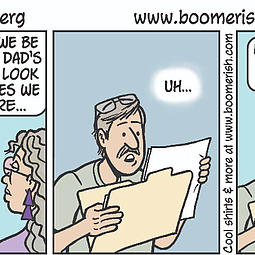Attention Trend Spotters: Dematerialization Is On the Rise
May 29, 2014 at 1:27 p.m.
Ever since I came across the word mentioned in an 1886 sermon, around the time it first came into use, I’ve noticed that in nearly every aspect of our lives where there’s been noteworthy progress it’s been accompanied by some degree of dematerialization.
Shop, plan travel, conduct meetings, transfer funds, read books, publish books, attend classes, read magazines, play music, compose music, see faraway places or instantly message with friends who live in them – all so dematerialized and now so normal.
That’s a familiar snapshot of life today. We live with less and less physical substance – matter – to slow us down or hold us back. But snapshots don’t show the whole picture. The larger story is what’s been gradually happening to the human mind. We no longer routinely let our ability to conceptualize anything be tied to matter. The mind is getting dematerialized.
We often see this played out in technological breakthroughs. Yet for all the remarkable advances we see in technology, there is a point before the development appears, when the thought of the developer(s) is open to a new model and fresh possibilities. Then the breakthrough -- a fresh idea pierces the old material sense of things and advancement is underway.
This is the larger picture that’s unfolding. Dematerialization and progress are happening across the spectrum of human experience.
Take health care for example. How long did Western medicine think strictly in materialistic terms, treating the physical body as separate from the mind? That model has been dematerialized somewhat and we now think of mind and body as a unit. Today mind-body programs are found throughout prestigious medical schools.
For the sake of better health and better lives it’s worth asking: does dematerialization stop there, with a conception of ourselves as a mix of inert matter and a mercurial mind? Are we assuming that’s the ultimate model? Are we assuming that’s the healthiest one to have? Some of the thinkers of our time are exploring such questions in earnest.
Going back to that 1886 sermon, one of the far-seeing observations made by Mary Baker Eddy continues to enlarge the possibilities of health care and of how we see ourselves: “Scientific discovery and the inspiration of Truth have taught me that the health and character of man become more or less perfect as his mind-models are more or less spiritual.”
Unrealistic? As much so as smartphones and texting would have seemed to a Pony Express rider. Old material mind-models can be as entrenched and “normal” as they are restrictive. Higher models -- less material and more spiritual – expand the range of thought and open it to infinite possibilities.
The assumption should be that in every aspect of life we’ll keep seeking better thought-models, and that dematerialization frees us to have them. Mind and its ideas thrive in such freedom. So does better health and better lives.






